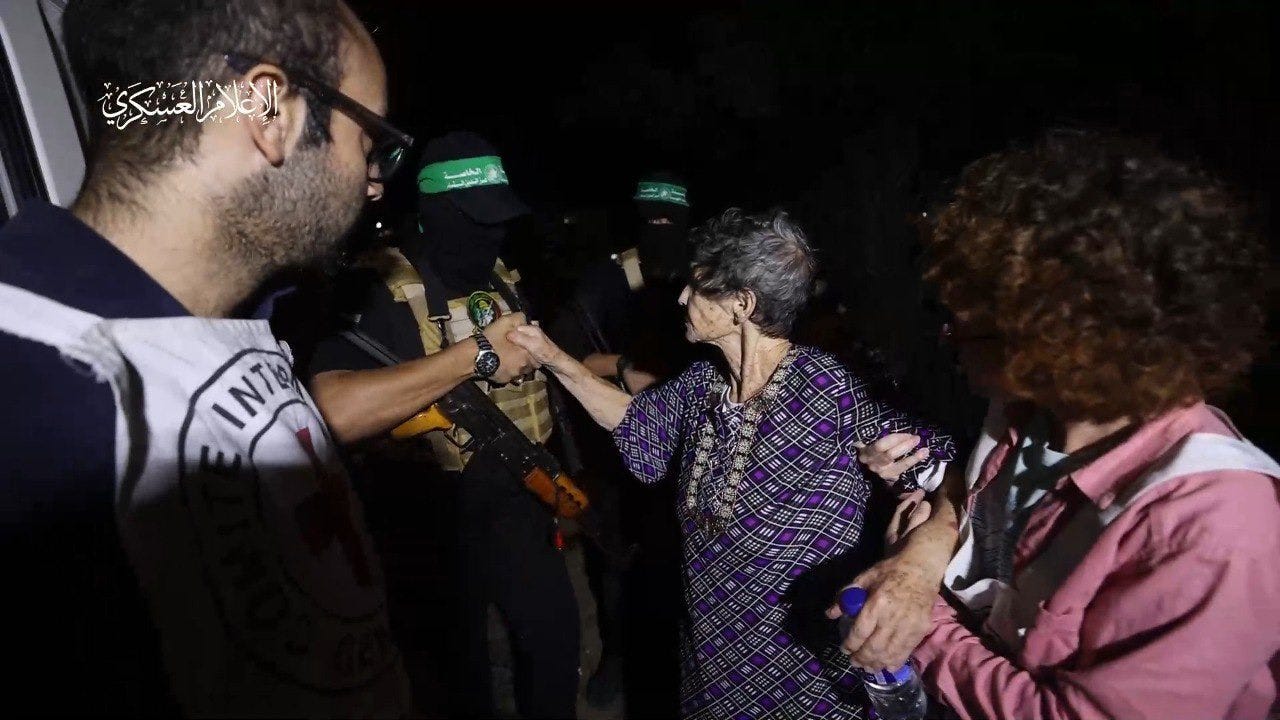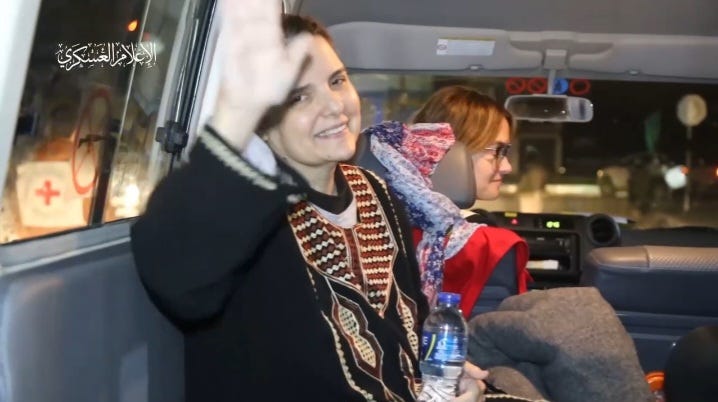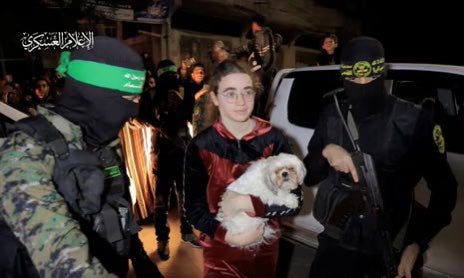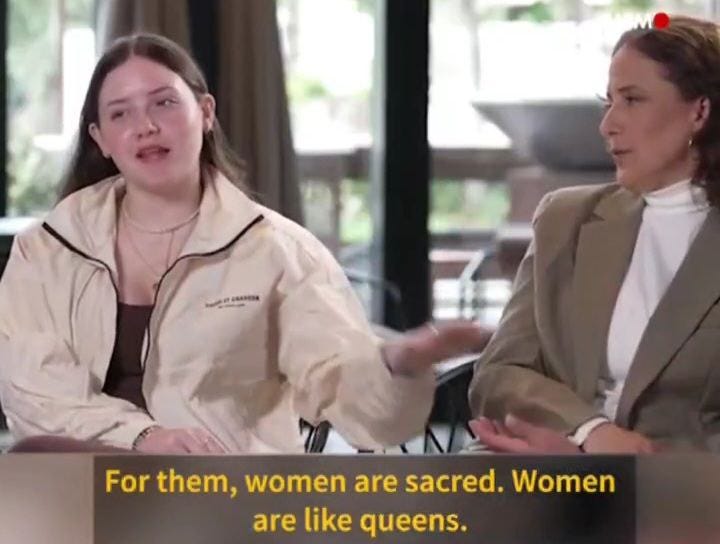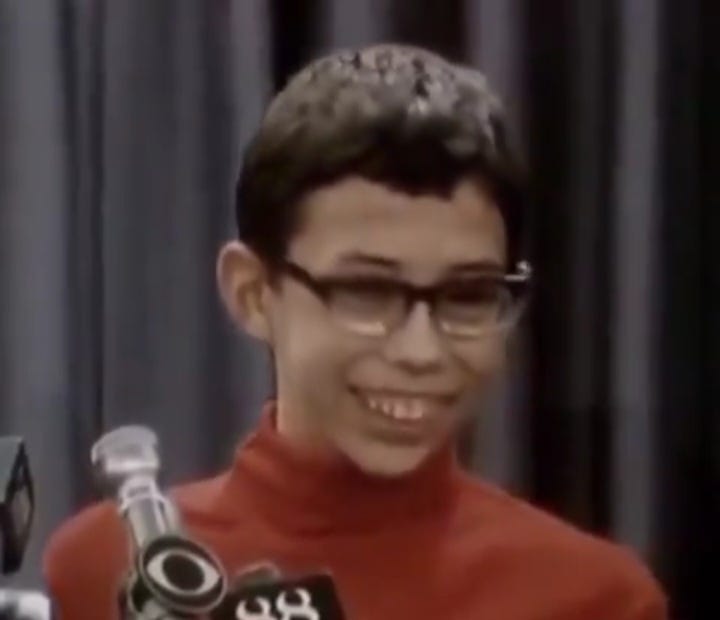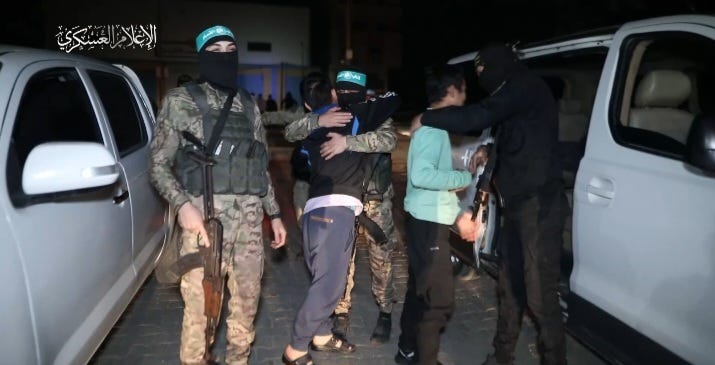Israel, a state promoted as the safest place in the world for Jews to live, may no longer be what it claims. Despite its stated objectives following October 7, of rescuing its hostages and eliminating Hamas, Netanyahu’s government has demonstrated its unwillingness to rescue its citizens and revealed the extent it will go to, to prioritise its own interests, which includes threatening those who seek the safe return of their relatives.
Immediately after October 7, we were inundated with horror stories about Hamas fighters committing rape, mass slaughter and beheading babies, driven by an innate desire for bloodshed and borne out of an inexplicable hatred of Jews. Mainstream media reports informed us that October 7 was “Israel’s 9/11” and the “Worst attack against Jews since the Holocaust”.
The propaganda blitz portrayed Hamas as bloodthirsty, antisemitic demons with a lust for rape and murder. The outrage and hysteria generated amongst Western audiences prevented rational analysis of the situation.
As the weeks passed, information that countered the original and official narrative emerged. This included details about the treatment of Israeli hostages by their Palestinian captors.
The First Hostage Release
The first four hostages were released on 23 October 2023 as a humanitarian gesture. They included two elderly Israeli women, 85-year-old Yocheved Lifshitz and 79-year-old Nurit Cooper. Video footage showed as Palestinian fighters released Yocheved to Red Cross staff, she turned around to shake the hand of one of her captors, giving him a hug and wishing peace upon him as they parted ways.
At a Sky News press conference, Yocheved’s daughter Sharone was asked why her mother shook the Palestinian fighter’s hand. She said “My mum is saying that they were very friendly and took care of them, that they were given medicine, that the people were friendly, that they kept the place very clean”. Yocheved went further, “They were very gracious, this must be said. They kept us clean, kept us fed. We had the same food they did.”
Israeli media accused Yocheved of lying about her treatment in captivity. It was claimed this was because her husband remained in Gaza and she would do anything to secure his freedom.
However, soon other freed hostages confirmed Yocheved’s experience.
On Israel’s Channel 13, Alon Ben David reported on newly released hostages who were “making the same statements” as Yocheved, saying they:
“..were not subjected to torture or ill-treatment. Hamas tried to provide medications every day but didn’t always succeed…All the hostages were together, speaking of good conditions and treatment by the Hamas men.”
The November Hostage Exchange
During a successful hostage exchange in November, some Israeli prisoners were dressed in traditional Palestinian garb and footage of them parting ways from their captors displayed a surprising level of fraternity following the earlier media blitz, which painted Palestinians as savages. Palestinian fighters and their captives were seen sharing high-fives, hugs, and laughing together. Some of the prisoners were speaking in Arabic, displaying gratitude towards their captors. The scenes can be seen here, here and here.
17-year-old Mia Leimberg was seen walking out of a car after spending 53 days in captivity with her small Shih-Tzu dog named Bella, her mother and her aunt. Mia spoke about her captivity and when asked how she was feeling after the ordeal, said:
“..I feel fine. I was checked into a hospital and I arrived and I am completely fine. Currently, I feel, well, not okay, but I don’t feel traumatised, I don’t feel like I can’t sleep.”
In another report featuring Mia, her father said since returning from Gaza she had a new expression of endearment for her dog: “I love you to Gaza and back”.
44-year-old Danielle Aloni was taken hostage with her five-year-old daughter, Emilia. During her captivity, in a a video published at the end of October, Danielle appealed to Prime Minister Benjamin Netanyahu for all of the hostages to be brought home and accused him of not caring about them:
“You were supposed to release all of us. No military was there. You want to kill us all. It isn’t enough that Israeli citizens were killed. Let us go! Let us return to our families now!”
Danielle and Emilia were freed the following month. Upon her release, she wrote a letter to her captors in Hebrew, which was published by Gaza’s Shehab News Agency. Below is an excerpt of the letter in English. Here, it can be read in full:
“To the generals who accompanied me, I thank you from the bottom of my heart for your extraordinary humanity shown towards my daughter, Emilia. You were like parents to her, inviting her into your rooms whenever she desired. Thank you for being patient and showering her with sweets, fruit, and everything available even when it was not. Children should not be in captivity, but thanks to you and other kind people we met, my daughter felt like a queen in Gaza. I will forever be a prisoner of gratitude because she did not leave here with psychological trauma. I will remember your kind behavior, despite the difficult situation you were dealing with and the severe losses you suffered. I wish in this world we could truly be good friends."
Social worker Chen Goldstein-Almog, her 17-year-old daughter Agam and two sons, 11-year-old Gal and 9-year-old Tal, were kidnapped from Kibbutz Kfar Aza. Chen’s husband and eldest daughter were killed on October 7. The surviving family were held as prisoners for seven weeks and kept together throughout.
In a report with The New York Times, Chen said in captivity she was treated “respectfully” and would engage in hours-long “deep” conversations with her captors, about their families, her captors’ experience as fighters, if a ceasefire would take place and of the dangers they all faced.
Chen reported her captors protected her and her children from the Israeli army’s gunfire, using their bodies as they were moved around Gaza. When she asked if she and her children would be killed, her captors told her they would die before them, suggesting they would be protected as best they could.
Chen said her captors told her the Israeli government does not care about the hostages and is only interested in war. They also said the killing of her husband and daughter was not meant to happen, that it was a mistake and against their religion. Chen reported her captors would also cry in front of her over fears they had about their families as the bombs dropped daily all over Gaza. Conversations included debates on how to raise teenagers and prosaic chatter about what they could eat that day. Chen said they all cooked together, the children would draw to relieve boredom and their guards taught them card games. The most difficult time Chen reported on was when her sons were arguing and a captor raised his voice demanding they stop.
In an interview in Israeli media, Chen’s daughter Agam said she received praise from her captors when she exercised. Chen said when arm-wrestling with her captor, he would cover his arm with a towel because touching unrelated women was “forbidden” according to his faith. Agam elaborated, “For them, women are sacred. Women are like queens”.
Nine-year-old Ohad Munder recalled his time in captivity and shared how his captors taught him Arabic words, the shahada, and how to use rosary beads correctly. He described his time in captivity as “..a fun experience”.
Ohad’s grandmother, Ruth Munder, was also taken hostage. After her release, a relative told The Jerusalem Post that Ruth did not experience any harm:
“Fortunately, they did not endure any unpleasant experiences during their captivity; they were treated in a humane manner. Contrary to our fears, they did not encounter the horrifying stories we had imagined.”
Ohad’s experience is reminiscent of child hostages of the past, when the Popular Front for the Liberation of Palestine took hostages in the 1970s to exchange for Palestinian prisoners. One of their hostages, following his release, grinned throughout an interview with media, referring to his captors as “..real nice” and how time in captivity was “..a good time”.
Natalie Hand’s nine-year-old half-sister, Emily, was kidnapped from her friend’s house where she was having a sleepover. Natalie spoke to Israeli media noting an increase in kindness and compassion demonstrated by Emily following her captivity, which she said was new behaviour:
“..she offers me even if I tell her I don’t want to, she goes ‘Eat some, for me’. It wasn’t like that. I asked her if they would suggest if they ate together and offer food to those who are more hungry or share with everyone..she nodded, ‘Yes’”
The Strange (Changing) Story of Mia Schem
22-year-old Mia Schem was held in captivity for 54 days after being seized at the Nova festival in Re’im. She was released in November on the final day of an extended temporary ceasefire. Mia was previously seen receiving medical treatment in captivity. In the clip, she says “I underwent surgery on my hand at the hospital. They are taking care of me, giving me medicine.”
When freed, Mia reiterated being treated well: “People [were] very good, very kind to me,” and spoke in Arabic, “Kullo tamam” [“Everything was alright”]. She also said the food she was given was good.
Following her release, Mia’s aunt Vivian Hadar claimed Mia was "..operated on in Gaza by a veterinarian."
This, however, was contradicted by French professor and surgeon Christophe Oberlin, who visits Gaza to teach doctors micro and reconstructive surgery. On French radio, Dr Oberlin said Mia had:
"..received treatment for a fractured humerus using a high-tech external fixator. The quality of the intervention, including the surgical examination of the radial nerve, shows the best standards of orthopaedic surgery. I can demonstrate this because I have been teaching techniques to Gazan surgeons for the past 20 years."
Weeks later, in an interview with Israel’s Channel 12, Mia spoke with a narrative differing vastly from earlier statements. Now, she described captivity as a “..personal Holocaust”. She recounted attending the festival and when attempting to escape with her friend, said they were stopped by a Palestinian fighter who shot her in her arm, which then detached from her body, for days, “I picked up my arm from the floor and held it”.
In captivity, Mia said her greatest fear was being raped. She said she would be without food for up to three days at a time. Her captor, she said, had a “mean-eyed” wife who would taunt her by bringing food to her husband only. She said she “..yearned for the embrace of a woman” but instead her captor’s wife mocked her hair. This, Mia said, resulted in her bonding with her captor.
Mia went on to say she became her captor’s relationship counsellor and spoke of a traumatic experience when her captor’s son brought candy in for her father, offered Mia a piece and then swiped it away before Mia could take any. Mia described that action as “pure evil”, concluding, “There are no innocent civilians..” in Gaza.
It is difficult to take some of Mia’s testimony seriously given her claims about a detached arm and her aunt’s claim she was treated by a vet.
Since Mia left Gaza, she has become something of a celebrity. She attended President Joe Biden’s State of the Union address, a Hollywood party hosted by Elton John and was seen speaking on the streets of New York City about her “job” which entails “..a lot of meetings”. She did not elaborate on what her new job is, but it would be unsurprising if Mia’s about-face was inspired by a lucrative position.
Many hostages released at the same time as Mia did not speak to the media, suggesting a refusal to go along with their state’s narrative.
True, it could be due to trauma, or because they have little interest in humanising the enemy during a war.
Alternatively, it could be due to threats made against them.
Carrots and Sticks in the Propaganda War
One person calling for the silencing of hostages and their relatives is former U.S. intelligence analyst, Jonathan Pollard. He was convicted for violating the U.S. Espionage Act after selling classified documents to Israel, for which he served three decades in a North Carolina prison. Pollard emigrated to Israel in 2020 after years of lobbying by Netanyahu and former Israeli prime minister Yitzhak Rabin. In a November interview, Pollard said of the hostages:
“The first thing the government should have done was to declare a state of national emergency and told all of the hostage families ‘You will keep your mouths shut or we will shut them for you, you will not interfere in the management of this war, you will not be used by the international community..as a weapon against us and if that means imprisoning, to silence certain members of the hostage families, then so be it because we’re in a state of war.”
In an interview in March, Pollard made clear his opposition for a further hostage exchange:
“Hamas cannot be allowed to survive and I am sorry but if that requires us losing our remaining hostages, then somebody has to make that hard decision.”
Supervising Hostage Voices
After the public relations disaster Israel suffered following the release of hostages in October and November, it was reported in Israeli media hostages would, “..receive close supervision, and they will be instructed on what to tell the media and what not," and that, “Medical officials would first assess whether the released hostages were fit enough to be questioned about their ordeal by Israel’s national security branch, Shin Bet.”
Ronen Tzer, former head of Hostage and Missing Families Forum, a campaign group for relatives of the hostages, reported on families threatened by “..ministers and Knesset members” for speaking out. Tzer resigned from his position in February.
Tzer’s co-founder, Haim Rubinstein, also quit working with the campaign group because of “..the Prime Minister’s Office’s meddling…in an attempt to divide [the families]”. He reported on the government’s rejection of a hostage exchange deal in the days following October 7 and believes Netanyahu is only interested in his job.
Tzer is not alone in this accusation against Netanyahu.
Danny Elgart, the brother of hostage Yitzhak Elgart said: "Netanyahu is part of the problem..hostages will return when the interest in bringing the hostages back aligns with the personal interests of Netanyahu.”
Zahiro Mor, nephew of hostage Avraham Munder, spoke to CNN about pressure from his government to go along with the official narrative and requested international intervention because Israel was heading “..into the abyss”. Previously, he spoke of feelings of abandonment from a government he viewed to be a greater threat than Hamas.
But how much of a threat is Hamas?
Hamas spokesman, Abu Obeida, explained why Israelis were kidnapped and went further, accusing the Israeli government of intentionally harming them:
"We have tried to protect and care for these prisoners for months, aiming for a noble and lofty humanitarian goal..the liberation of our oppressed and subjugated prisoners and achieving..human rights of our people..we have warned dozens of times about the dangers faced by the prisoners..and the losses among them..but the occupation's leadership..deliberately kills its prisoners and injures them,"
On Palestinian prisoners, Obeida was referring to thousands of Palestinians in Israeli prisons held under a policy - inherited by Britain - known as Administrative Detention, which amounts to imprisonment for an indefinite period of time and where no formal charges are made. Some have been held for decades. Effectively, it is kidnapping by the Israeli state.
Dr Lerpong Sayed, who successfully negotiated the release of Thai migrant workers kidnapped on October 7, explained why Palestinians revolted. When asked if it was justified to kidnap Israelis, he said:
“Yes, because there are more than 6,000 Palestinians captured in the past and their families can’t visit them..the world didn’t hear their cries, that’s why Hamas had to do this, to get the world’s attention focused on Israel’s treatment of the Palestinians.”
Before October 7, there were over 6,000 Palestinian prisoners in Israeli jails. Since, the figures exceeds 9,000 and continues to grow.
Obeida also spoke about dangers faced by hostages, which were confirmed by some Israelis, in and out of captivity. Fears not of Palestinians, but the Israeli army.
The Hannibal Directive
Early testimonies by victims of October 7 confirmed some Israelis were killed under orders of their own army to prevent Palestinians kidnapping them and using them as bargaining chips, deploying a policy known as the Hannibal Directive.
The Hannibal Directive was used during previous wars on Gaza in relation to Israeli soldiers, but on October 7 and subsequently, the government applied the order onto Israeli civilians.
An investigation published in January by Ronen Bergman and Yoav Zitun - both known to have links to Israel’s military and intelligence apparatus - confirmed the Hannibal Directive was still in operation. The investigation revealed the military “..instructed all its fighting units to perform the Hannibal Directive in practice, although it did so without stating the name explicitly”.
Bergman and Zitun’s investigation reinforced the testimony of one survivor of October 7, Yasmin Porat, who reported the army shot at Israeli civilians that day.
34-year-old Doron Katz Asher, who was taken hostage with her two daughters while visiting her mother in Kibbutz Nir Oz, said her captors treated her and her daughters well and they were not physically harmed. After being freed, she revealed her mother, Efrat Katz, was killed on October 7 by the Israeli army, who fired at the tractor she was on, en route to Gaza.
In a March interview, Israeli army soldiers admitted killing their own citizens on October 7.
Noam Dan is the cousin of Ofer Kalderon who remains in captivity. Ofer’s children, 16-year-old Sahar and 12-year-old Erez, were released in November. In a report with The Telegraph, Saher said she was instructed to withhold details of her captivity to protect the remaining hostages. She spoke of intense airstrikes which she believed would kill her, “I told myself that, in the end, I will die from Israel’s missiles and not from Hamas."
Noam was also instructed on what she could say to the media. However later, in a blistering report on Israeli TV, Noam said her government was only interested in a military option, was not interested in freeing the remaining hostages and was also responsible for killing some of them:
“The government of Israel..they are enacting on my family, on our citizens, on civilians taken captive..the Hannibal Directive. We hear that the hostages are getting killed..”
Noam accused Netanyahu and Minister of Defence Yoav Gallant of being the “..fingers in the cabinet” obstructing the rescue of remaining hostages because of their political interests, stating they are “..captive to a dangerous and belligerent opposition” and how that was “..the only thing that concerns the Prime Minister”.
Noam also spoke of the fury felt by families of hostages killed by the army, such as the mother of Ron Sherman.
Ron Sherman was killed in captivity alongside hostages Nick Beiser and Elia Toledano. Ron’s mother, Dr Maayan Sherman, was told her son had been killed by Palestinians. Then she was visited by Dr Alon Krispin, who informed her there were no wounds on her son’s body to explain his death. In Israeli media, Dr Sherman said:
“..they came to our house and told us he was killed by Hamas. At the time, I didn’t have the desire to know that he was killed..I didn’t ask whether they shot or tortured him. But two weeks later, we got a message from the doctor who saw his corpse. He told us there is no signs of a gunshot. No sign of broken bones.
Following the revelation, Dr Sherman wrote angry posts on social media, blaming the army for the “deliberate” murder of her son by poisonous gas pumped into tunnels in the Jabaliya refugee camp in Gaza, where Ron and the other captives died. She believes they were sacrificed in order to target high-ranking Hamas figure, Ahmad Randor, who the army reported killing in January. On one Facebook post addressed to her son, Dr Sherman wrote, “Forgive me for not saving you. I didn't believe they would sacrifice three for one senior official."
At a ceremony commemorating Ron’s death, his parents inscribed words on a plaque: "Abducted, abandoned and sacrificed in Gaza by the blunder government in the October 7 tragedy”.
Following the ceremony, the plaque was removed by Israel’s Defence Ministry.
Hostages Appeal
In January, a video of Noa Argamani, Yossi Sharabi and Itay Svirsky, shows them pleading to be brought home and for an end to the war.
Later, Noa spoke about airstrikes hitting the building the three were in, resulting in her head being “..full of shrapnel”. She said her captors rescued her and Itay after finding them under rubble, but they could not save Yossi. Itay was then killed by further airstrikes while being relocated in Gaza. Noa appealed to her government demanding they “Stop this madness and bring us home..while we are still alive.”
Merav Svirsky, sister of Itay, said of her government, "They lie to us, they sacrifice them..I was given up on completely''. She criticised Israeli media for the “..discourse conveyed to the public'' about saving hostages. She said a hostage exchange deal should be made and encouraged Israelis to protest.
Following an investigation by the Israeli air force, they admitted their airstrikes had killed Yossi Sharabi.
White Flag Hostages Killed
Ron Sherman, mentioned above, was killed on the same day the Israeli army killed three other Israeli prisoners in Gaza, Yotam Haim, Alon Shamriz and Samer Talalka. They were shot after escaping captivity, despite waving white flags and shouting in Hebrew at the army to “..rescue Israeli hostages”.
After the three were killed, a video was published on Palestinian channel Resistance News Network showing them in captivity and speaking of their desire to be free. They appealed to Netanyahu to stop the bombing of Gaza, which they said had almost killed them, and confirmed they were treated well by their captors.
The killing of Yotam, Alon and Samer was initially subject to censorship in Israel. After the lifting of reporting restrictions, their relatives spoke out.
In an interview with NBC, Alon’s father said of his government:
“You murdered my son twice. You let Hamas take my son on October 7 and you killed my son on December 15. They don’t deserve us as a country, as a community. They are not our leaders. They are thinking only of themselves. They are not thinking about the hostages..about us.”
Yonatan Shamriz, brother of Alon, was earlier seen on Israel’s i24 News stating he did not trust his government or expect them to secure the safe return of his brother. After Alon was killed, Yonathan spoke about the betrayal he felt, saying Netanyahu should be sent to prison, and called for revolution:
“You came from the tunnel to the open air, witnessed freedom and stood against a ridiculous chain of command, an irresponsible regime. You did everything right. Alon, I promise that your death was not in vain; we will rise and shake the country. We ensure that your name becomes..a symbol of revolution. We won't forget those who betrayed us..We will pursue the officials. They will regret it”
In Part Two, we will look at the ongoing revolt by relatives of remaining hostages, as negotiations for their return and an end to the war has entered a stalemate.


